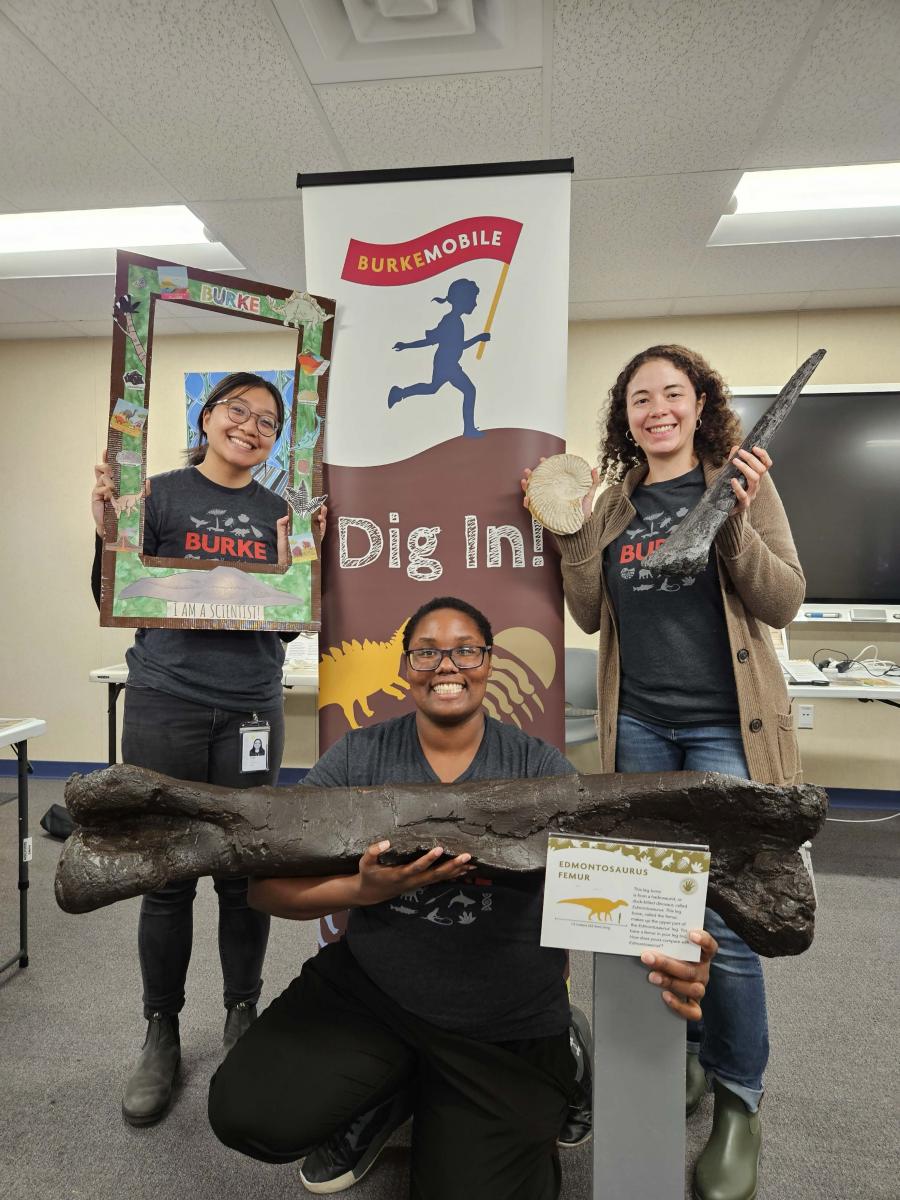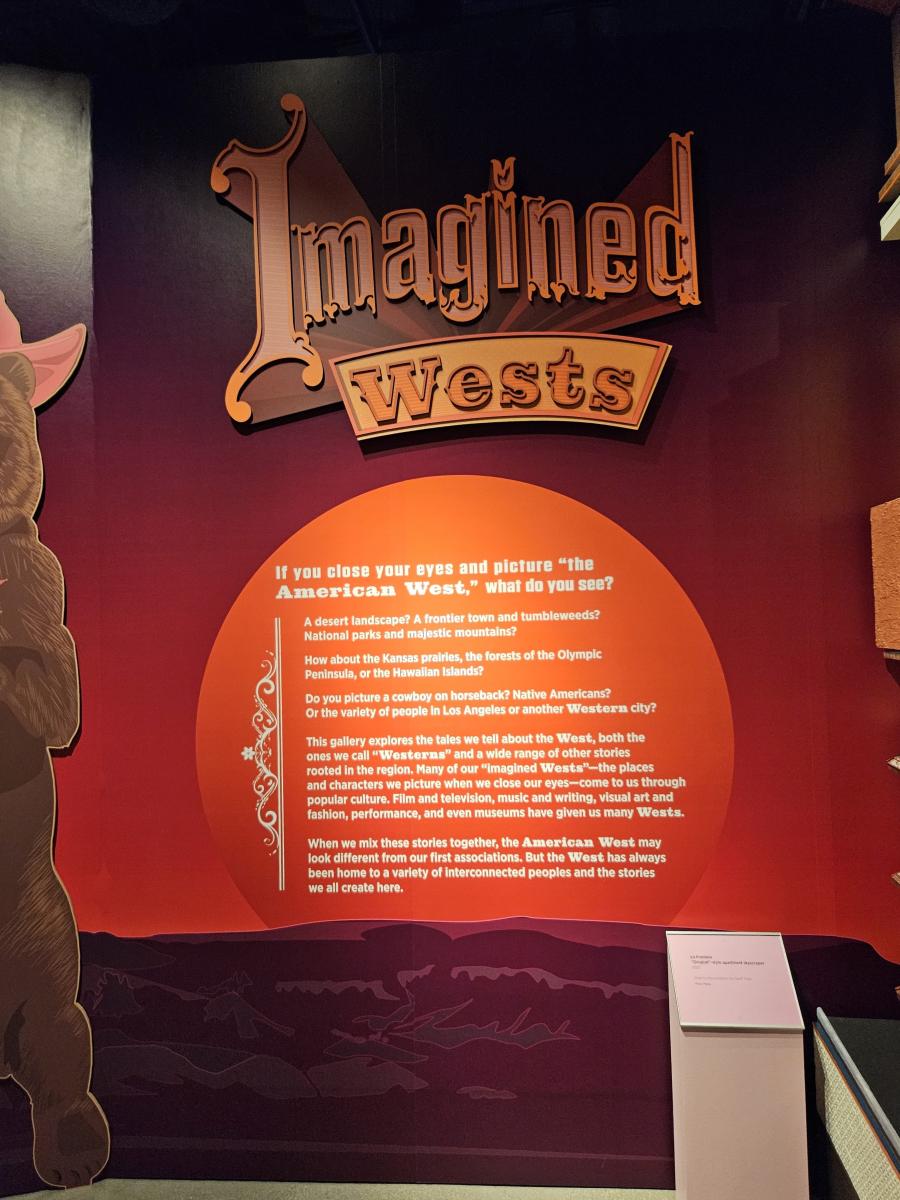Written by June Pen, Burke Museum of Natural History and Culture, 2023 Wanda Chin Scholarship Recipient
I write this while there is a lot of uncertainty and grief in the world. It is hard to stay engaged across the various aspects of my life when things feel so overwhelming. Sometimes it feels like the easiest alternative is to go numb and withdraw from caring and from paying attention, but I believe that to do so is to lose hope and ignore the fact that love is everywhere despite everything. In reflecting on my experience at the 2023 WMA Annual Meeting, I realize this year’s theme of CONNECT was poignant and well-chosen. As a Wanda Chin scholarship recipient, I was so glad to be able to go without a heavy financial burden especially because I traveled from Seattle, WA to Pasadena, CA.
I have the privilege of working at the Burke Museum of Natural History and Culture, located on the University of Washington campus in Seattle. I am part of the Education division’s BurkeMobile outreach program. This work brings me to schools and communities across Washington state, sharing museum collections and spending time with young learners who might not otherwise get to experience the museum due to financial or transportation constraints.

As a staff member at the official Washington State Museum, I do not take our place within the museum world or the trust of the public lightly, so I think it is imperative to understand how to connect and stay connected with the communities we serve and hope to serve at the Burke. Building relationships and facilitating meaningful connections across museums, communities, and individuals is an ongoing lesson.
This is why I was so excited to hear from others in the field at WMA’s Annual Meeting. It was an honor to learn from people representing institutions encompassing both broad and niche topics. Specifically, my colleagues and I spend a lot of time weaving decolonial practices into what we do, so it was invigorating to hear from people who do this on the daily like Karen Kosasa, Noelle Kahanu, Kamalu du Preez, Josh Tengan, and Halena Kapuni-Reynolds – I attended their session where they examined the terms decolonization and indigenization and left with a lot to chew on. They also gave space for attendees during the session to chat about our thoughts, which was a big thing I appreciated throughout the conference.
Attending talks and sessions is a good way to take in and process information, but one of the most impactful parts for me was the downtime where I got to chat (connect, if you will) with others. I especially appreciated the roundtable sessions on the last day of the conference. I am still intimidated by speaking up during sessions, so this was a great way to ask questions face-to-face with folks who inspired me (shoutout to the friends at the Natural History Museum of Utah at the “STEM Rooted in Culture” table, who let me take up a lot of their time as they shared about their incredible outreach with local communities)!
Staying engaged is hard work. I focused on my own wellness knowing it wouldn't do any good to attend sessions mentally exhausted, so I visited the Autry Museum of the American West which is now one of my favorite museums, and the NASA Jet Propulsion Laboratory (thanks to my friend/colleague Aaron who booked us a tour months in advance). Both places inspired me in how they find ways to engage visitors through curiosity, interactivity, and just the right amount of information-sharing.

It can be easy to put one’s head down and just “do the job,” and it takes a lot of courage, curiosity, and care to ask meaningful questions of our work. Who is this work for? And do they feel like they’re actually getting what they want/need out of it, or am I just making assumptions? Why are we doing it this way? What would happen if we tried a different way?
Even more, acting upon what we learn when we do answer those questions takes time, energy, funding (an unfortunate reality), and the willpower to co-create a reciprocal relationship. I am still learning what this looks and feels like, especially as a museum person working amidst a tumultuous landscape of ongoing social change, repercussions of a pandemic, and navigating being a human and community member. Attending the Annual Meeting allowed me to witness people in their element not only talking about what they do at work but also who they are as people – it was a conference full of tough reckonings but also laughter and clear signs of love for this challenging and rewarding field in which we find ourselves. This gives me hope.
___
Biography: June Pen (she/her) is an educator at the Burke Museum in Seattle, WA who is passionate about centering learners, culturally sustaining practices, and love as a foundational aspect of her teaching. June also identifies as a daughter of survivors of war, a Khmer community member, a writer, a musician, a taekwondo student, and a lover of stories in all forms. She can be reached at jpen@uw.edu.







